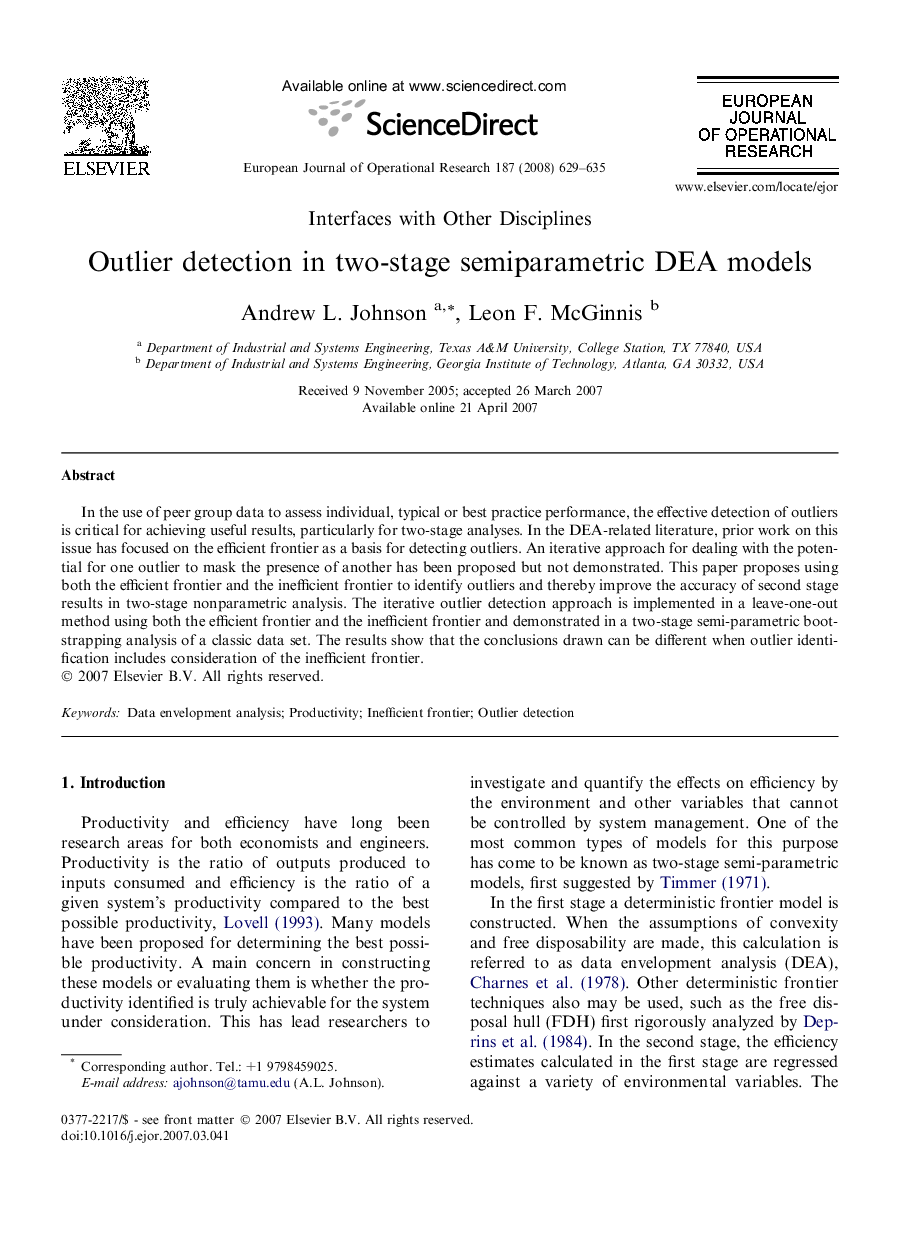| Article ID | Journal | Published Year | Pages | File Type |
|---|---|---|---|---|
| 481488 | European Journal of Operational Research | 2008 | 7 Pages |
In the use of peer group data to assess individual, typical or best practice performance, the effective detection of outliers is critical for achieving useful results, particularly for two-stage analyses. In the DEA-related literature, prior work on this issue has focused on the efficient frontier as a basis for detecting outliers. An iterative approach for dealing with the potential for one outlier to mask the presence of another has been proposed but not demonstrated. This paper proposes using both the efficient frontier and the inefficient frontier to identify outliers and thereby improve the accuracy of second stage results in two-stage nonparametric analysis. The iterative outlier detection approach is implemented in a leave-one-out method using both the efficient frontier and the inefficient frontier and demonstrated in a two-stage semi-parametric bootstrapping analysis of a classic data set. The results show that the conclusions drawn can be different when outlier identification includes consideration of the inefficient frontier.
